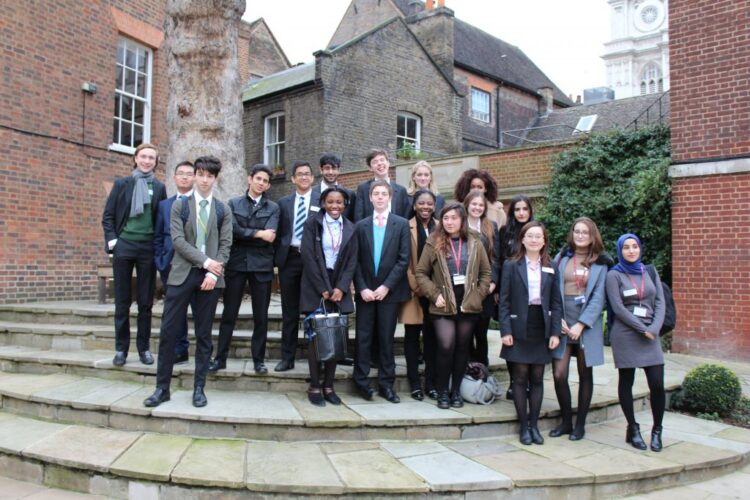By Gavin Mackintosh-
Authorities of a highly rated London sixth-form has told pupils to stop referring to teachers as ‘sir’ and ‘miss’ in a bid to challenge cultural misogyny.
The announcement which is unusual in London is expected to promote greater levels of gender equality, The Eye Of Media.Com has heard.
Harris Westminster‘s executive principal James Handscombe told students that students who disregarded the new rules could face sanctions, including suspension. The terms were “deeply unequal”, he said.
He added that while ‘sir’ invoked gallant knights such as Sir Lancelot or Sir Galahad, ‘miss’ was “how you refer to a small girl, or an Edwardian shop assistant”. ‘Madam has a stroppy connotation’, he told students.
Rather, he asked students to refer to teachers by their honorific and last name, such as Mr Handscombe.
Addressing teachers by the word ‘teacher’, is admissible, provided the staff concerned does not object, he said.
Handscombe told students that the terms fed into “a view of the world that diminishes women”.
“Men get to be fearless leaders and alpha types, get credited for hustling whilst behind the backs of women it’s asked whether they deserve it, whether their career comes from good ideas or good looks, power moves or diversity lists.”
He said it is a school-only policy, and one that is not being adopted more widely across the Harris Federation, which operates the sixth-form, or Harris Clapham Sixth Form, where Handscombe is also executive head.
In the case of the latter, Handscombe said it had a “different culture” and was at a “different stage of their evolution”.
Harris Westminster, where 49 students received Oxbridge offers last year, was set up in 2014 as a selective free school that gives priority to disadvantaged pupils with high academic potential.
But after the idea was raised again by a female staff member in a meeting earlier this year, the school decided this June was a “good time” to implement the approach due to current year 13s already leaving for the exam period.
Different terms for female teachers were discussed, but staff decided “madam has a stroppy connotation, and mam sounds like you’re a royal or from the 1920s,” Handscombe told Schools Week.
The “fanciful” sensei – the Japanese term for teacher – and the “very Hogwarts” professor were also discussed as replacements, before being discarded.
“It’s going to be difficult for us all, but this is your opportunity to change how we do things here, to achieve something those pioneers couldn’t manage, to leave a legacy that will be remembered for the thousand years of school history that we’re planning,” he told pupils.
Teachers will “ignore” pupils who use the now-banned terms, but will “recognise” not all pupils will know their names so will give them “amnesty to say ‘I’m sorry, I’ve forgotten your name’ – or, more likely, ‘I’m afraid I’ve forgotten what title you use’”, Handscombe said.
But if pupils refer to a teacher as sir or miss “in order to be disrespectful…then [we] would quite rightly sanction them appropriately”.
He admitted that while he thought “cultural misogyny” was a “global problem that I would like all schools to think about”, he did not anticipate a mass rollout of the policy.
“A lot of schools have got particular things to think about and other priorities,” he added.
Assessment
Some academics believe the new guidelines could have positive effects on pupils by encouraging students to use gender-neutral titles and promote a more inclusive environment by challenging traditional gender norms, but could also have its downsides.
Researcher and analyst, Joshua Hopwood told this publication: ”Removing gender-specific titles could give students a greater sense of autonomy and empowerment, as they are not bound by traditional gender roles and expectations.
”On the minus side, some students, teachers, and parents may resist the change or find it confusing, as gendered titles have been traditionally ingrained in educational systems. It may take time for everyone to adapt to the new practice.
There is also the possibility for the change in addressing teachers could alter the dynamics between students and teachers. The formal titles may provide a sense of hierarchy and respect that could be lost in a more informal approach.
”There is also always the potential for differing opinions on whether abandoning gendered titles effectively addresses the issue of misogyny. Some may argue that it is merely a symbolic gesture and that more substantial efforts are needed to combat sexism and promote gender equality.
”It is important to note that the implications may vary depending on the specific context and the perspectives of the individuals involved.
The Harris Federation was contacted for comment.

